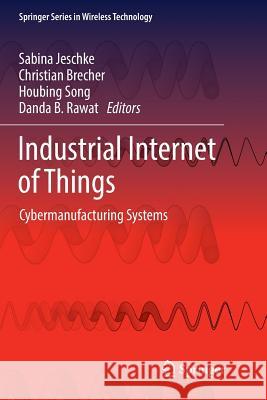Industrial Internet of Things: Cybermanufacturing Systems » książka
topmenu
Industrial Internet of Things: Cybermanufacturing Systems
ISBN-13: 9783319826080 / Angielski / Miękka / 2018 / 715 str.
Kategorie:
Kategorie BISAC:
Wydawca:
Springer
Seria wydawnicza:
Język:
Angielski
ISBN-13:
9783319826080
Rok wydania:
2018
Wydanie:
Softcover Repri
Ilość stron:
715
Waga:
1.00 kg
Wymiary:
23.39 x 15.6 x 3.73
Oprawa:
Miękka
Wolumenów:
01
Dodatkowe informacje:
Wydanie ilustrowane











